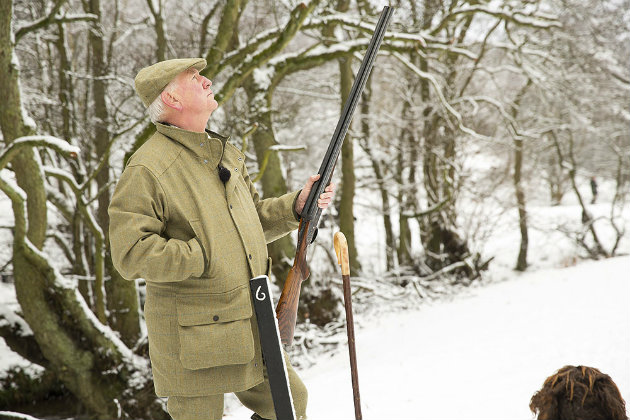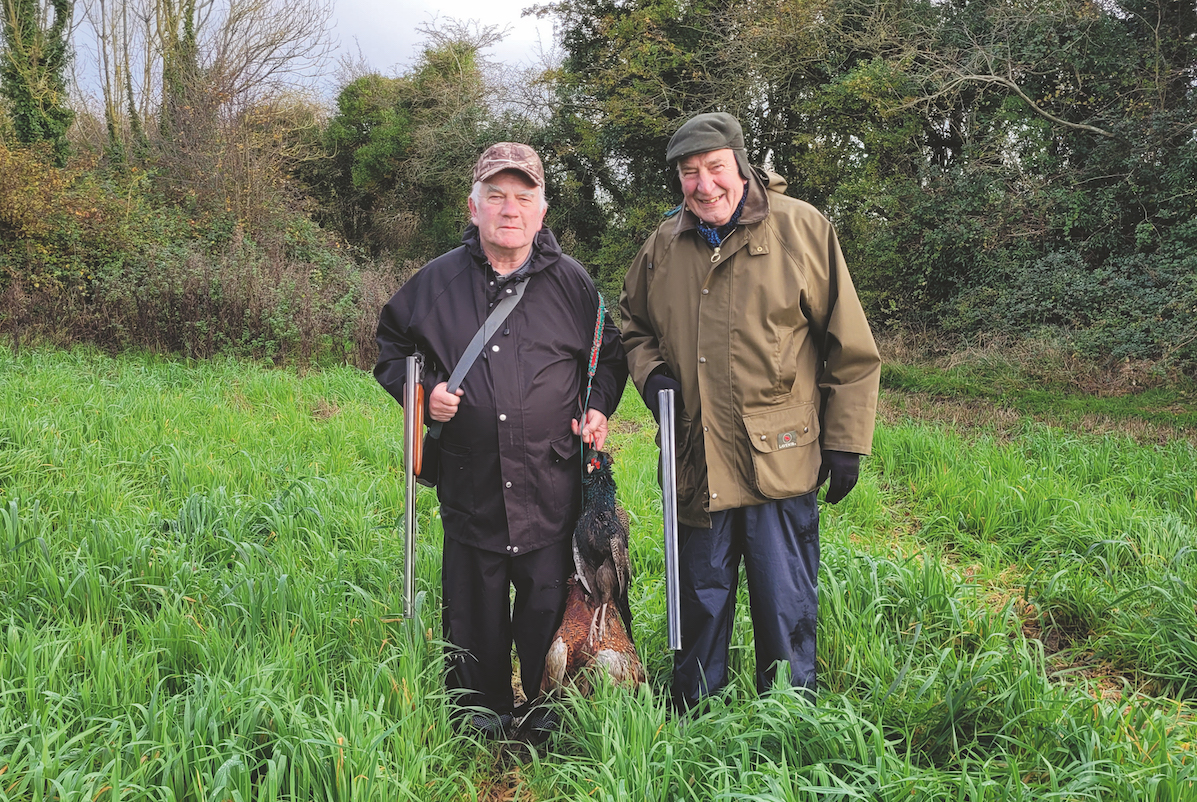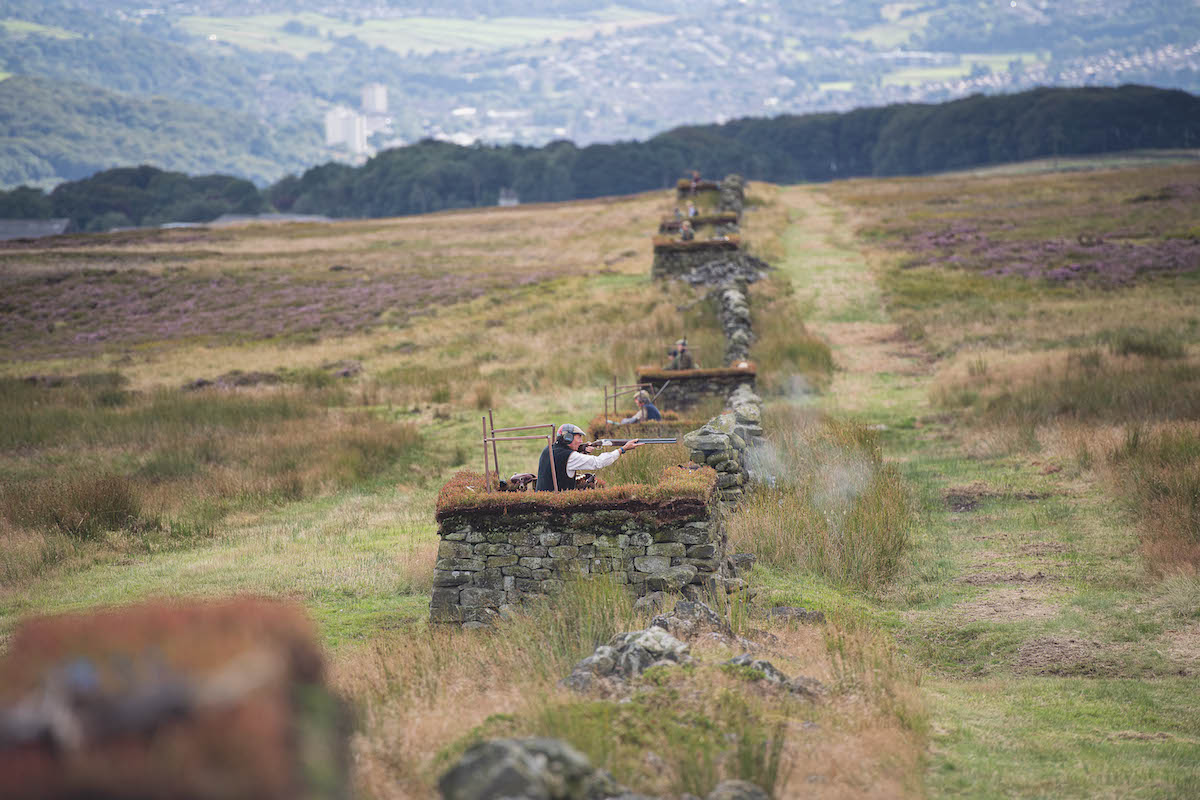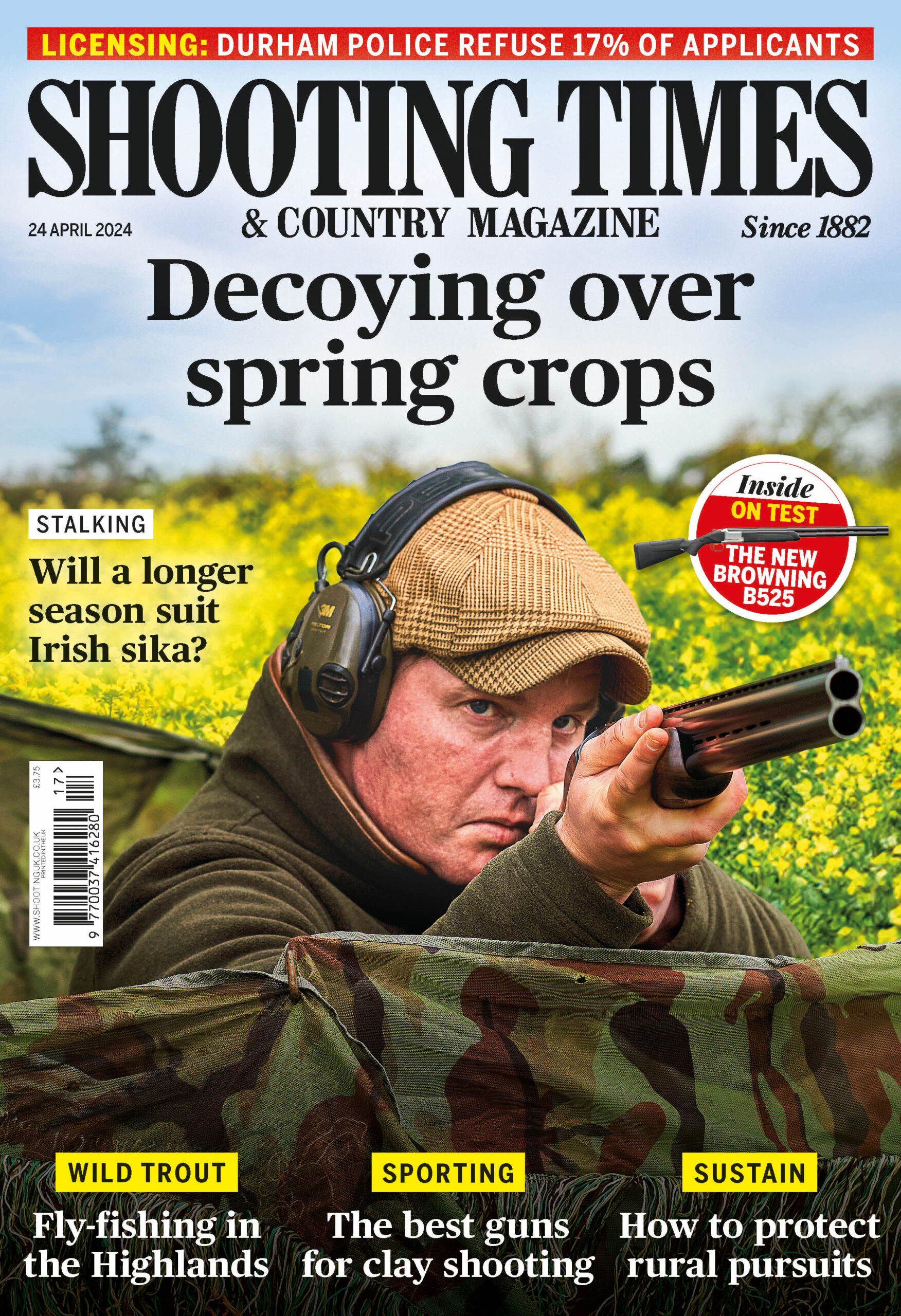Mark Osborne of William Powell in the hot seat
Mark Osborne, the joint owner of William Powell, on the grouse season so far, and how shooting can best deal with the periodical threats it faces.

Mark Osborne was interviewed for the October 2016 issue of Shooting Gazette.
Have you been out relentlessly since the Twelfth?
“I was out on the Twelfth and have been out a fair bit since as we keep going as long as we need. As well as letting days, we also manage quite a lot of moors so that involves a lot of extra days out, making sure things are running smoothly.”
I’ve heard of a few days being cancelled; what is your snapshot of the grouse season so far?
“Overall, England is generally good but there are patches of weakness. Scotland is the place where there is massive variation, but there are a good lot of grouse in parts, just sadly not in many parts! The normal Scottish powerhouse, the Lammermuirs, is pretty quiet but bits of Perthshire, Invernessshire and Aberdeenshire are surprisingly good.”
Are some moors suffering because they aren’t using modern techniques?
“No. This is a throwback year when the simplistic truisms that people have believed for the last eight or nine years have been proved wrong. The Lammermuir moors for instance are run very well, managed to a very high standard and yet have few grouse this year.”
Are they using modern techniques?
“Absolutely. Owners, agents and keepers all thought we had cracked grouse moor management a few years ago with modern medicated grit and we would never have boom and bust again… just like Gordon Brown did with the economy. This year and last year have proved that not to always be the case and we can still have poor or even disastrous years if the right (or wrong) circumstances occur.”
There is no silver bullet, surely? It also requires the staggeringly hard work of the keepers?
“It is seldom that grouse fail due to a single factor. We all tend to think it is one thing that causes there to be few grouse; poor spring weather or high worm counts, but this year confirms this is not so. Compounding factors seem to account for there being no shootable surplus. This could be bad spring weather and may be the poor condition of the hens in the spring, which could be due to poor weather affecting the heather the previous summer, or perhaps late hatches of insects at crucial times, or a building worm burden and poor spring weather. Take the moors above Alston in Cumbria, which includes the highest driven grouse moor in England. A pretty bleak place and yet this year they have a really good lot of grouse. If it was purely weather-related this spring, why did these and indeed other high moors “escape” and have done well whilst other, much more sheltered moors have fared badly?
“We are involved in a moor along the A9 in Inverness-shire and here the grouse have
“Conservationists do not see the bigger picture and neither does the RSPB.”
done very well on the high Corrie ground. This is a very odd year – a real throwback to the boom and bust years of old.”
You seem to have an insatiable thirst for understanding grouse?
“It is a platitude but the more I think I understand exactly how it all works, the less I actually do and the more surprises I get. However, I am amazed how some people seem absolutely confident they know the answer, because I don’t!”
What do you make of Chris Packham’s latest assault on grouse shooting?
“He has a point of view. It is not one that I believe is correct. We will all see things we want to see from our own perspective. He believes, provided there is a representation of bird species in any given area, then that’s acceptable. I think that is extraordinary because if you only have two birds, a male and a female of a species, it is almost certainly not a sustainable population. Therefore, it is farcical to suggest this is what we ought to be satisfied with.
“Conservationists like Chris Packham often do not see the bigger picture and neither does the RSPB. I think that’s very strange. Surely what we want is a sustainable population? That means you have to have all birds in multiplication; there cannot just be a pair of stone curlew or whatever they may be. You only have to lose one and you have no sustainable population.
“Chris Packham is charismatic, he is knowledgeable, he is personable, he comes across well, his command of the facts is good and grouse shooting is pretty unattractive to non shooters, isn’t it? It involves killing things… for sport. It includes killing predators so we can have a bigger shootable surplus. Even worse it involves rich people killing things. It is incredibly difficult to make it sound and look attractive. As a result it is easy to criticise and whip up public opinion against. It is very unfortunate that someone with his platform is able to use it to denigrate moorland management.”
So, if you were made ‘Minister for Grouse’ tomorrow, what would you change?
“First I would try to get our side to become much more joined up, more supportive and cohesive, and more focused on understanding that we face massive threats that will not go away, merely by ignoring them and hoping they will. We will have to defeat our opponents like Chris Packham et al and we won’t defeat them by being selfish, stupid, greedy, isolationist, arrogant and all the other things that we in the fieldsports world have on occasions a tendency to be. We have seen it with hunting. We know that if we had tackled the anti-hunting lobby earlier and better, we would not have had the Hunting Act. We need to make sure we do not go that way with shooting. We have tremendously rich people in the grouse moor community, but we are nowhere near as joined up or as focused as we should be and we need all our supporters to really get behind “us” in every way possible, otherwise we will lose it and reared pheasant and partridge shooting will follow.”
Do you think it is the fault of any one organisation or just a massive lack of foresight between groups?
“I do not think it is the fault of one organisation. I think it is the fault of all of us who shoot and participate that we do not look forward enough. We do not look at our children and grandchildren. We are typical human beings; sadly we are rather selfish. We enjoy our shooting but we do not have the drive and passion for making sure young people who are maybe eight or 10 years old now will have that same choice going forwards as we have had. That is probably particularly true of many shooting people who have made a lot of money, but don’t seem too concerned with making sure it all continues when they have long gone.”
Thinking back, can you remember your first shot at grouse?
“I can remember my first day on a moor. I was eight years old and I went with my father. My father was not passionate about grouse shooting but my uncle and my grandfather were. I was captivated by it. We lived in the Peak District of Derbyshire and my family had an involvement in a moor there. It is incredibly wild countryside with awesome quality grouse, but never a lot of them!
“We have made great strides in the grouse moor world. Sometimes with those great strides we have made mistakes. We do need to refocus now and if we want to keep grouse shooting in its present format, we need to get our act together. I am absolutely certain that we have the capacity to do so. We have tremendous support in our moorland communities.”
And, in the way that the survival of grouse is multi-faceted, should our approach mirror that?
“I think on the whole our fieldsports organisations are much more unified and together than they have been historically. We just do not give our organisations the support they need. How can you have an entity like the grouse world with some of the richest people in the country involved and yet we allow Chris Packham and co to take the lead? Why do we do that? If something is worth defending, it is worth us committing to it. I am under absolutely no illusions, grouse shooting is easy to attack because of the raptor issue. That is the one single issue that grouse shooting is most vulnerable on. It depresses me when I hear pheasant and partridge keepers, thinking of grouse keepers as their nemesis; it is not like that. If we lost grouse shooting, we would ultimately lose the rest. We now discuss things such as immigration that we could not have sensibly discussed 10 or 15 years ago. Indeed Europe is an excellent example of what used politically to be a taboo subject but is now openly able to be talked about.
“I am certain that in time we will have to accept the fact there will need to be some effective control over some currently protected predator species. The idea buzzards can continue to multiply and that there should be no control element is bonkers. It is the same with ravens. That is not at all to say there should not be buzzards and there should not be ravens. It is great that there are ravens in the wild now, but do we actually think the countryside will stand a doubling of the current populations? The trouble is no one is brave enough to say that we now live in a highly managed countryside and whether it is right or wrong, there has to management. That may change some aspects of grouse shooting and we may not everywhere be able to have grouse shooting in exactly the same format as now. I think it is not a case of maintaining the status quo; it is probably a case of defending the best of the status quo and going forwards looking at a properly managed countryside. The recent court case over licensing was welcome as is Natural England’s current mind-set, which is pragmatic and one we should be able to work with.”
Should BASC and the Countryside Alliance be lobbying harder?
“I think we need to look at things afresh and possibly we may have a chance of that post Brexit when “we” look at agricultural support, HLS, conservation, etc. These areas may be a good place to start looking at how we could improve on what we have and achieve what overall seems a sensible working, living and recreational countryside.
“The idea that the Chris Packham and the Mark Avery perspective is the only view or indeed is the right one is completely wrong. It is as wrong as not wanting a healthy raptor population, but one that allows other species to thrive as well. Both views are isolationist, simplistic, very counterproductive and have no place in the 21st century’s balanced countryside that we need and future generations deserve.”








